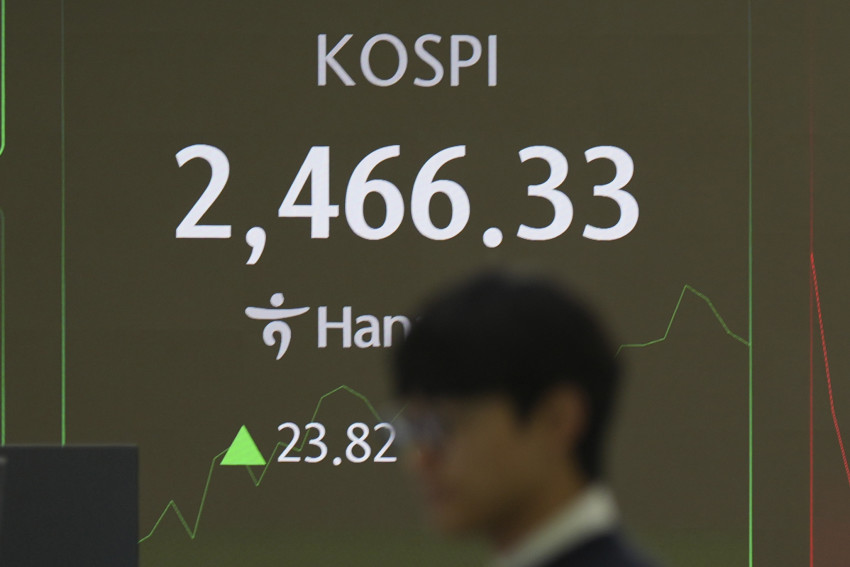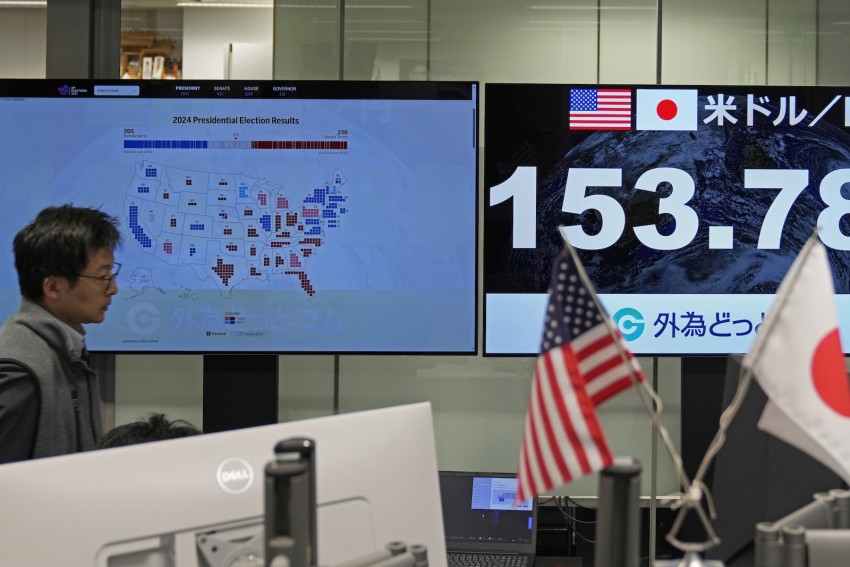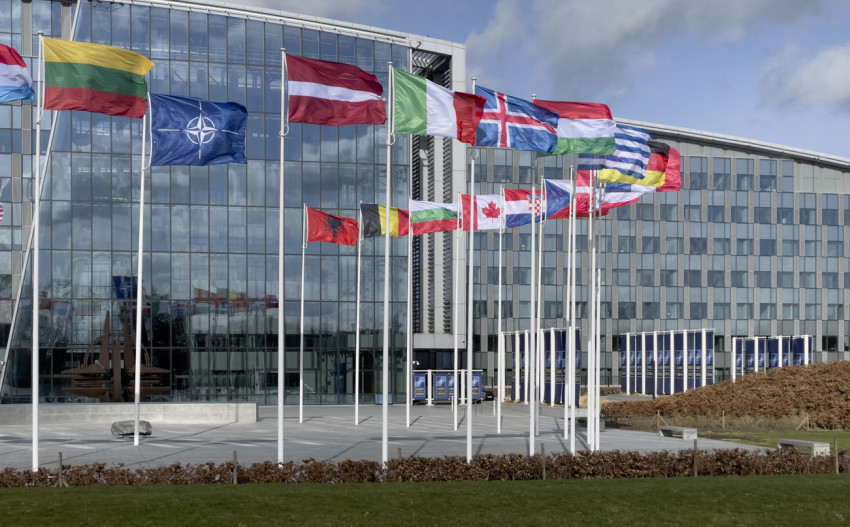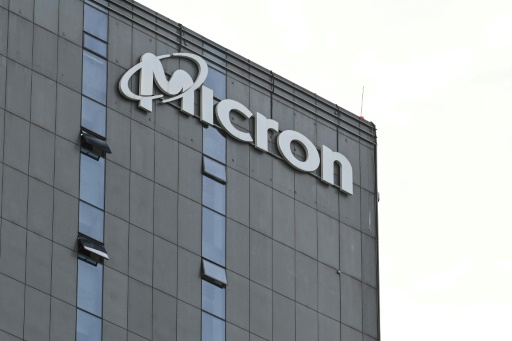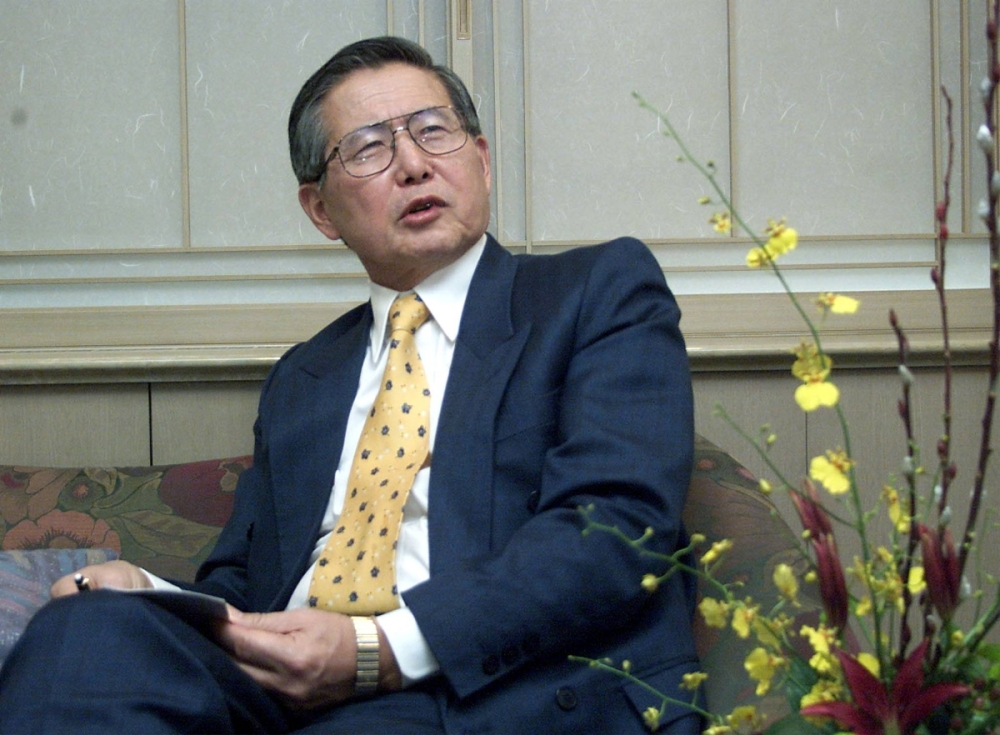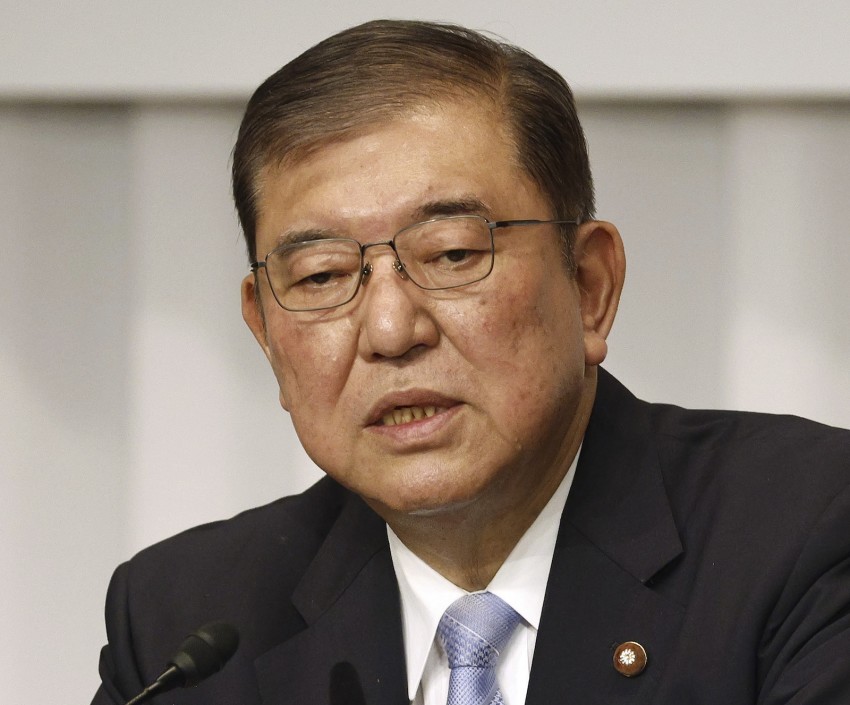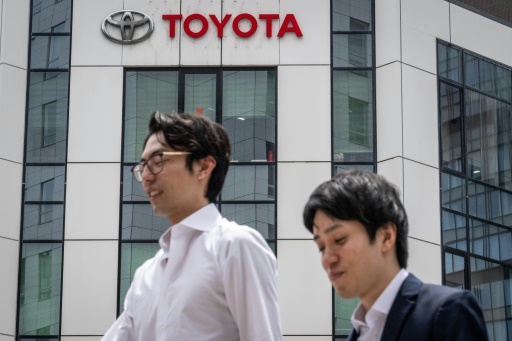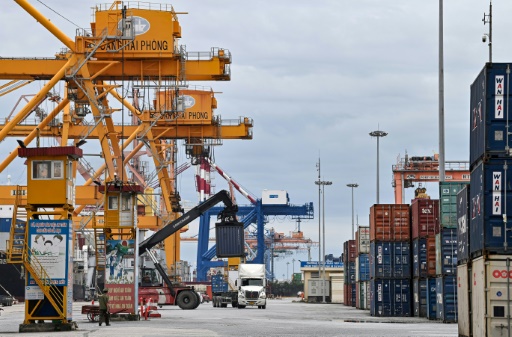Asian shares mostly decline, shrugging off Wall Street overnight rally
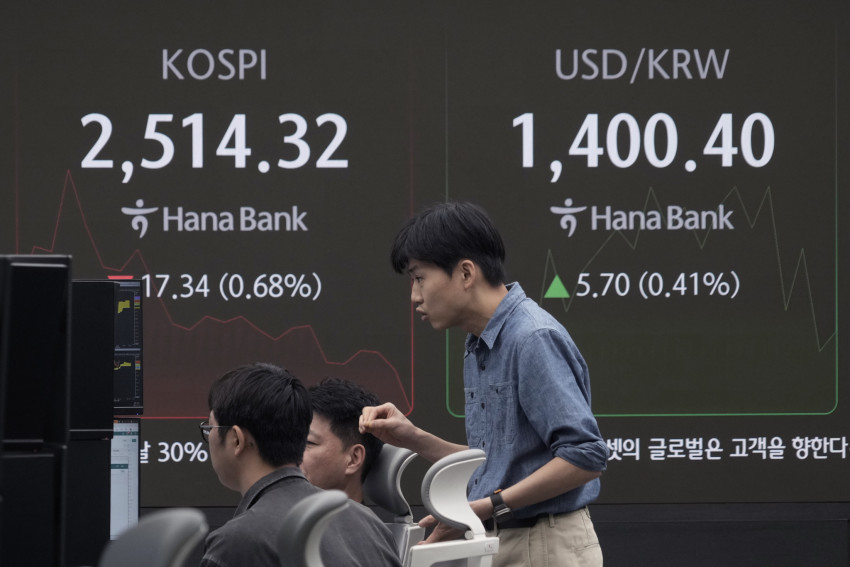
Asian shares mostly fell Tuesday, despite a rally on Wall Street in stocks seen as benefiting the most from Donald Trump’s reelection as U.S. president.
Japan's benchmark Nikkei 225 reversed early gains to decline 0.6% in afternoon trading to 39,289.14, weighed down by uncertainty about how Trump's policies, including tariffs, may affect local industries.
Australia's S&P/ASX 200 lost 0.1% to 8,255.60. South Korea's Kospi declined 1.6% to 2,490.19.
Chinese tech stocks have been declining lately, while investors also have their eyes on upcoming earnings reports out of China.
Hong Kong’s Hang Seng dropped 2.9% to 19,839.88, the first time the index fell below 20,000 points since China announced a stimulus package in September. The Shanghai Composite lost 1.2% to 3,429.42.
On Wall Street, the S&P 500 edged up by 0.1%, coming off its best week of the year following Trump’s victory and a cut to interest rates by the Federal Reserve to bolster the economy. The Dow Jones Industrial Average rose 304 points, or 0.7%, while the Nasdaq composite gained 0.1%.
Tesla was the strongest force pushing upward on the S&P 500 after rising 9.1%. Its leader, Elon Musk, has become a close ally of Trump’s, and its stock jumped nearly 15% the day after the election and has kept rising.
Several pieces of what’s known as the “Trump trade” also helped drive the market, as investors try to identify which companies will be winners under a second Trump term. JPMorgan Chase rose 1%, and financial stocks again helped lead the market on expectations for stronger economic growth, less regulation from Washington and an increase in mergers and acquisitions.
A White House more friendly to big tie-ups has helped Wall Street speculate about a merger between insurers Cigna Group and Humana, for example. It’s been so feverish that Cigna said Monday it isn’t pursuing a deal with Humana. Cigna’s stock rose 7.3%, and Humana’s sank 2%.
Stocks of companies more focused on the U.S. economy were also rising more than the rest of the market, including a 1.5% rally for the smaller stocks in the Russell 2000 index, because they’re seen as benefiting more from Trump’s America First policies than big multinational companies.
They helped offset a drop of 1.6% for Nvidia, which was the heaviest weight on the market.
Such Big Tech stocks have rocketed higher on excitement about artificial-intelligence technology, and they had been gaining almost regardless of what the economy was doing. Now, though, critics say their prices look too expensive, and investors are finding more interesting buys among companies that could benefit more from Trump’s second term.
A drop for Nvidia packs a particularly heavy punch because its massive value of nearly $3.6 trillion makes it one of the most influential stocks on the S&P 500 and other indexes.
Some of the sharpest swings were in the crypto market, where bitcoin rose above $87,000 for the first time. Trump has embraced cryptocurrencies generally and pledged to make his country the crypto capital of the world. Bitcoin hit a record of $87,491, according to CoinDesk.
Another Trump trade has been a rise in Treasury yields, as traders anticipate potentially higher economic growth, U.S. government debt and inflation because of Trump’s policies. But trading in the bond market was closed Monday in observance of Veterans Day.
Treasury yields have been generally climbing since September, in large part because the U.S. economy has remained much more resilient than feared. The hope is that it can continue to stay solid as the Federal Reserve continues to cut interest rates in order to keep the job market humming, now that it’s helped get inflation nearly down to its 2% target.
All told, the S&P 500 rose 5.81 points Monday to 6,001.35. The Dow gained 304.14 to 44,293.13, and the Nasdaq composite added 11.99 to 19,298.76.
In energy trading, benchmark U.S. crude declined 20 cents to $67.84 a barrel. Brent crude, the international standard, fell 15 cents to $71.68 a barrel.
In currency trading, the U.S. dollar edged down to 153.65 Japanese yen from 153.72 yen. The euro cost $1.0634, down from $1.0660.

